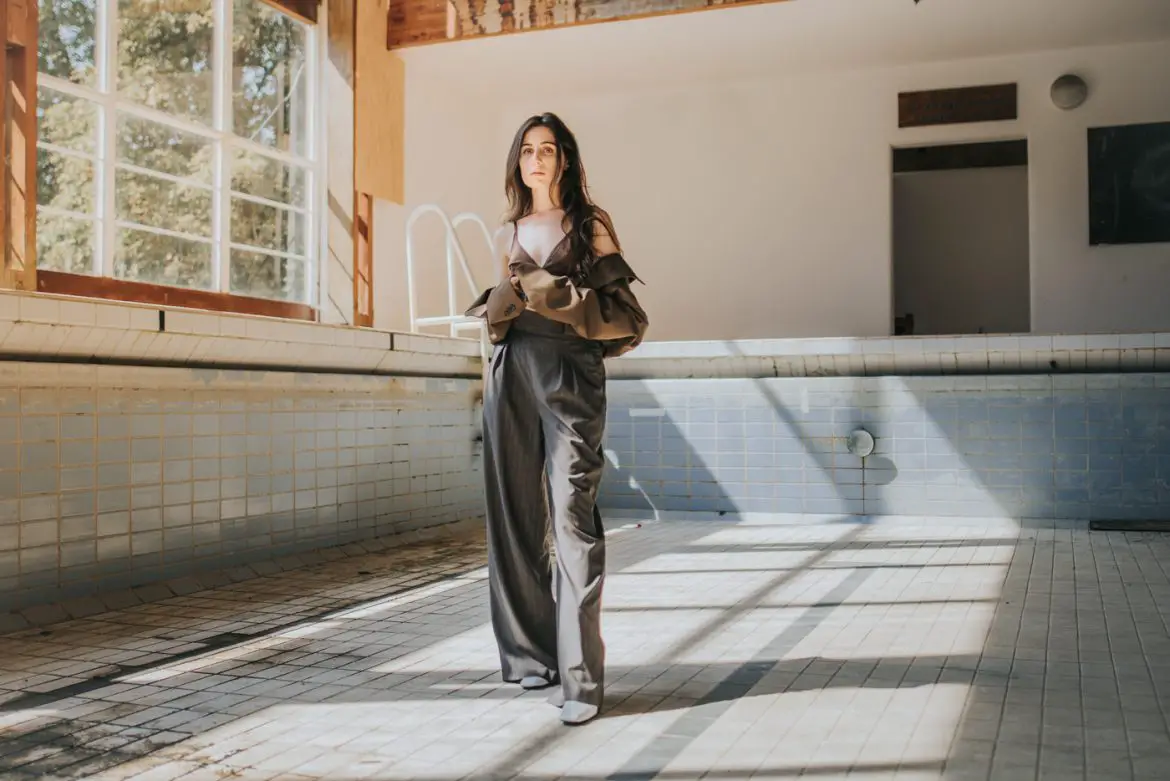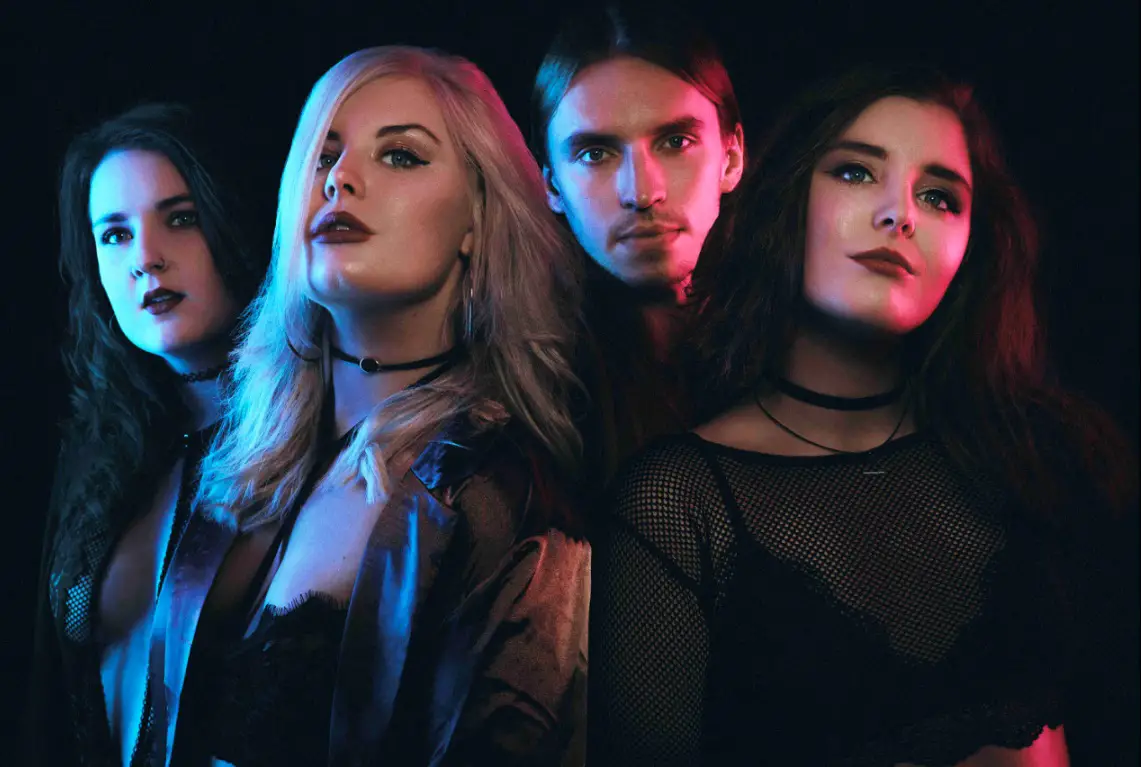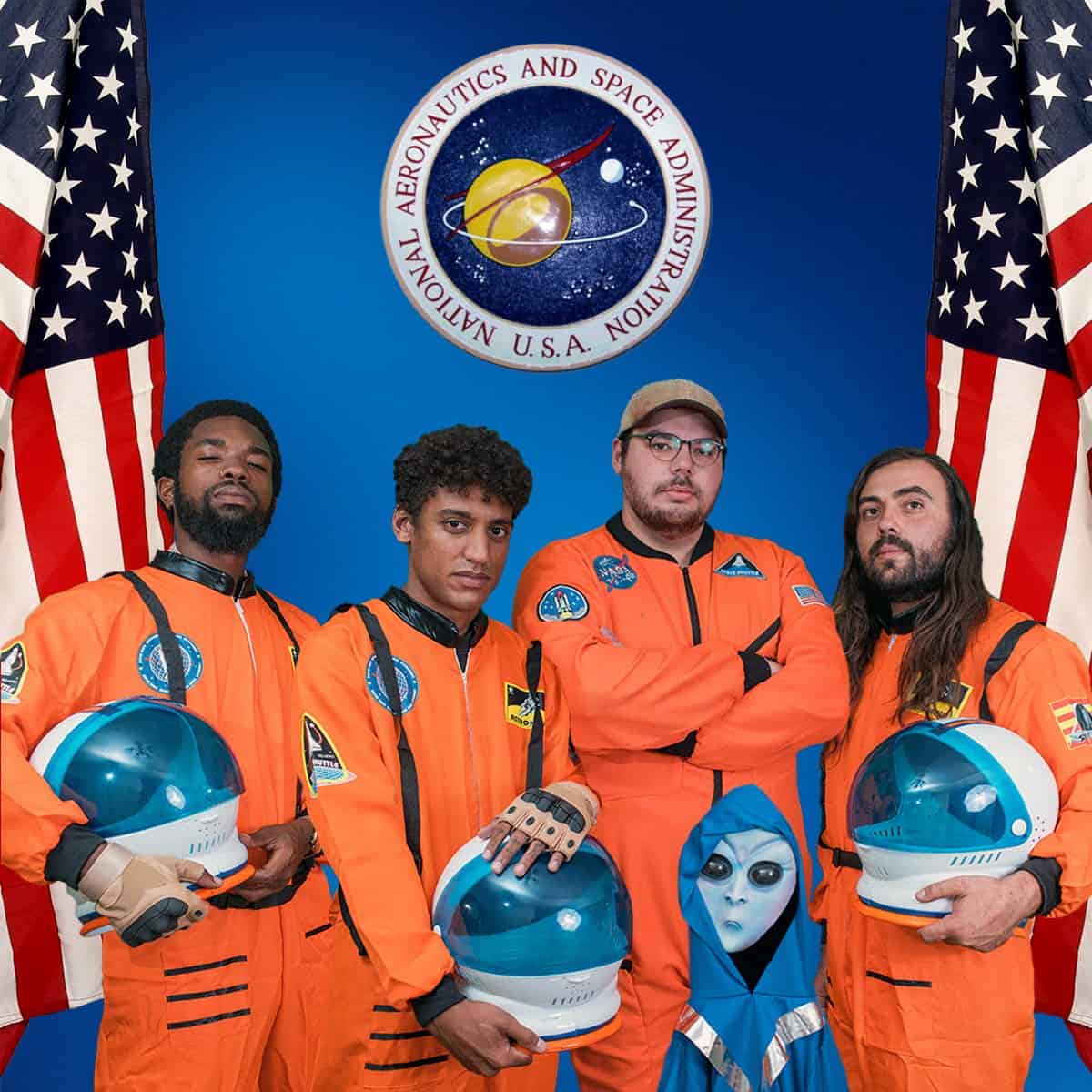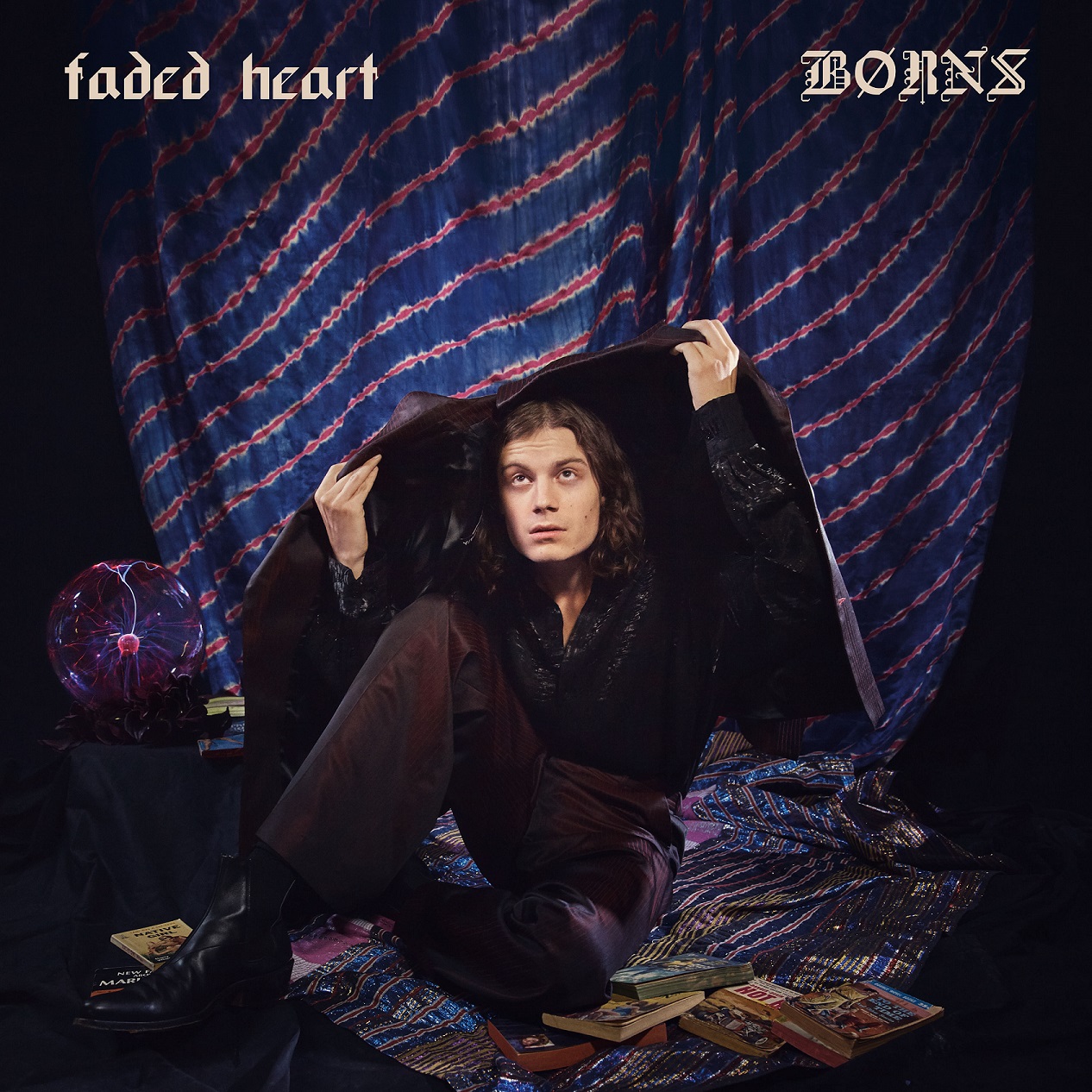dodie’s debut album ‘Build a Problem’ tackles the good, the evil, and how we’re built to love.
Stream: ‘Build a Problem’ – dodie
Sat in a warehouse just outside of London, singer/songwriter dodie is spending her day signing CDs, vinyls and cassette tapes for her debut album Build a Problem.
For most this would be a mundane and tedious task, but she’s trying to make the most of it. “We’ve blasted our way through. I’ve put on Drag Race and we’re snacking and signing and having an alright time,” she says with a laugh.
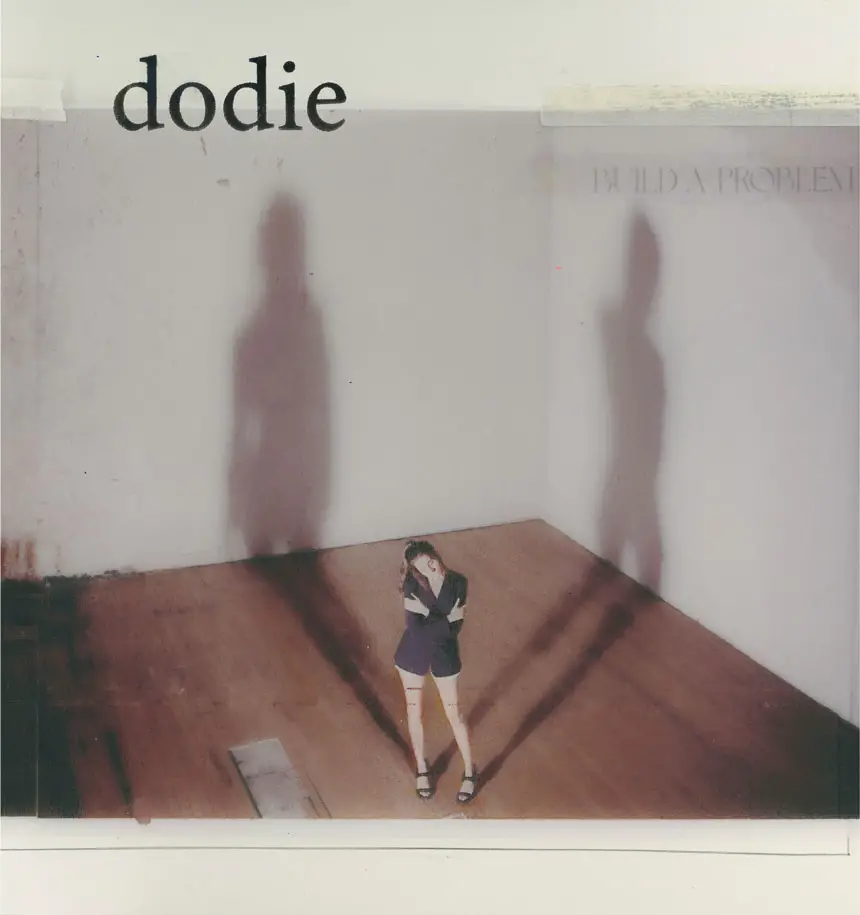
Her album has had quite a rocky release schedule, being delayed twice before setting the final date of May 7. “Pushing it back is always upsetting, but probably more so in this year when the goalposts keeping moving for everything,” she explained, but if anything, that just made her more excited and ready for it to release.
Like many musicians in the modern age, dodie got her start on the internet, posting videos of herself singing on her YouTube channel doddleoddle beginning in 2011, recently celebrating her 10 years on the platform. Since then, she’s amassed over 341 million views from posting covers and original songs alike, occasionally doing collaborations and mashups with artists like Tessa Violet, Orla Gartland and more.
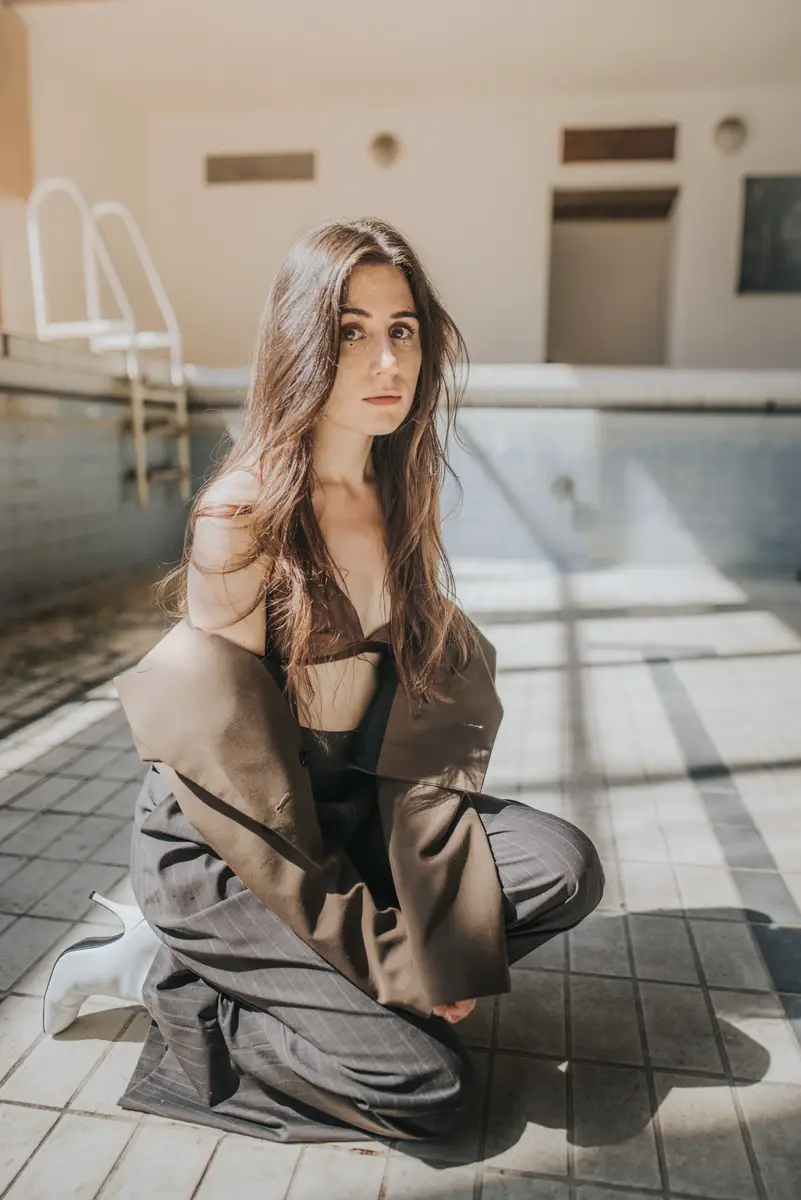
Though YouTube is where her career started and is still a platform where she posts from time to time, dodie doesn’t want to be looked at as a “YouTuber.” In a recent video on her second channel, doddlevloggle, she said, “I love it when people bring up YouTube in interviews or say it was a home for me because it was. What I don’t like is when people call me a ‘YouTuber,’ because it puts me in a box I don’t think I belong in.” After releasing several singles, a few EPs and two albums, it’s safe to say that she has surpassed the title of YouTuber and deserves the title of artist.
Though dodie’s moved on to being a full-time musician, she’s still just a girl writing music in her bedroom. “I’ve had so much fun writing, so much fun building up the songs that I’ve created in my bedroom,” she said. She’s certainly built upon her work, going from just her vocals paired with a ukulele, to arranging scores for strings sections. “I’ve always liked the idea of strings,” she began, “I like bringing an intensity to my songs, but I don’t think I have a powerful voice enough to bring that, so to be able to write that drama and depth into strings instead and bring it in that has been really useful I think.”
While her voice isn’t conventionally powerful, her delicate tone has its own power, motivated by the passion from the lyrics she writes. dodie’s never been one to shy away from being vulnerable or candid. “I never really know what I’m writing until a few years go by and I can reflect back on that feeling,” she said as we talked about “Rainbow,” a single off the album.
Watch: “Rainbow” – dodie
“Rainbow” is one of those songs that immediately addresses the notion of being different. Paired with the strings and likes, “I was brought up in a line, but I seem to walk in circles / It’s getting hard to navigate when every map was never made for me,” it’s able to tell that story beautifully. dodie sees the song as a double entendre, “It’s a song about being different in any way. Whether that’s, queer or struggling with something and the shame and complications of that,” she started, “But also the bursting through of the community and the hope that comes along with a label or being a part of something. I think that’s something I deal with not just in my bi-ness, but in all aspects of life.”
dodie’s been rather open about her sexuality, writing a song in 2017 called “I’m bi-sexual – a coming out song” and posting it to her YouTube channel. Yet, there’s more to these lyrics than her sexuality. She says: “And I thought it would feel good, to understand why I was different / But my title just talks over me, I never even asked to be this way.” This felt more like a reference to her struggles with mental illness over the years, something she’s also been open with fans and listeners about.
She’s struggled with depression, anxiety and depersonalization for a good majority of her late teen and adult life.
She admits that she’s at a point where she’s friends with her depression. While knowing that it makes her different, she also knows it’s a part of who she is, something she’s aware won’t change, falling in line with the core theme of “Rainbow.”
Her song “Rainbow” brings a sense of self-acceptance, but the two songs that precede it tell the story of how she got to that place. “Cool Girl” and “Special Girl” feel perfectly placed, which was both a conscious and unconscious choice. “I don’t think I really understood cognitively, but I just knew subconsciously that I wanted to put them together, It just felt right,” she said. She then continued to say, “It sort of moves through being written and being built in a way and how that makes me personally love.”
Watch: “Cool Girl” – dodie
“Cool Girl” plays with the effortless “cool girl” one that’s plagued girls for years. What began as a silver screen trope became a means that girls perpetuate for male attention. If a woman is seen as not being like the other girls or as “easy-going” she’s more desirable. The chorus sums it up perfectly repeating, “Cool girl / Will be different / I’ll be quiet / Oh, so easy.” She’s not the first to play with the trope, Tove Lo wrote a song of the same name and Gillian Flynn wrote the best-selling novel and highly-rated film “Gone Girl” which deconstructed and criticized the trope as a whole. But like a hydra, dismantle one version, and a new adaptation grows in its place.
“Special Girl” on the other hand, dives deeper into where it all began, for dodie that was her childhood. “It does sort of tell a story of upbringing, and kind of what the album is about, which is being built and loving in a certain way that is difficult and complex to navigate,” she stated. The heartbreaking line, “I found my worth in this world / By proving I’m a special girl / Time and time again,” breeds a sense of seeking constant validation from others, proving you’re worth their time. The difficulty and complexity of the love she mentions can be heard in the chorus:
Sweet, sweet irony
Could not care less if you love me
But hate me first
And make me work
That’s perfect
Baby I’m a funny thing
I’m walking if it doesn’t sting
Heartbreak only means that it was worth it.
For Dodie, the album is a mix of old and new, releasing songs she’s been reflecting on for a while, demos she’s put on YouTube that amassed fanfare and songs she’s put out before that didn’t feel quite finished, like her song “When.” Originally released on her 2016 EP Intertwined, it was a song that was recorded live, but she felt there was more that could be done with it. I admitted the song to be a personal favorite and that, being unaware it was on the album, hearing it made me ugly cry in my car. “Oh bless,” she said with a laugh. “It’s always been a favorite of mine and a fan favorite, really personal,” she continued.
Despite having strings in its original release, there was an elevated feeling in its new release. “I wanted strings and I was given strings, but I wanted to add them myself and bring a hugeness to this song, she began explaining. Adding on, “I think it’s so wide and so vast. It explores this huge feeling of the question of meaning and I always knew I wanted to come back to it.” Unlike its first released counterpart, this one felt much darker. “Obviously I was younger and now I’m older and I still really relate to that song. So I wanted to kinda dip into the sadness of the truth of the song which is ‘I’ll always be waiting forever,’” she said, excited that the darker elements were recognizable.
Watch: “I Kissed Someone (It Wasn’t You)” – dodie
Dodie has often been known for a softer, more upbeat tone, but between the strings, the killer harmonies and minor keys, something about this album feels more mature.
A prime example being “I Kissed Someone (It Wasn’t You)” which sent chills down my spine with its haunting composure. Toying with the feeling of loneliness, its message feels familiar, which was partially her point. “It’s the pinnacle of your mid-twenties and feeling very lost and very lonely and looking for that in answers that aren’t answers,” she explained. The lyrics themselves are very simple, but dodie’s idea comes across loud and clear.
“The idea really is kind of like feelings in an Uber ride home from a messy night out, where you’ve broken up with someone and you’re just trying to fill that void with,” she began. Then it felt like she had an epiphany, going on to say, “Well honestly being a slut really, whatever that means and there’s like a shame in it.” A shame dodie noted shouldn’t be real but is there nonetheless. “I think that feeds into the loneliness as well so you end up spiraling in the back of a car and I think we’ve all felt that in some way,” she finished.
“I Kissed Someone (It Wasn’t You)” isn’t the only song to explore that idea as it goes hand in hand with the track “Four Tequilas Down,” which is also attempting to fill that void. It almost feels like the aftermath, its opening verse saying:
It’s 5 am when you close the door
I don’t know who I am anymore
And tell me did you make your eyes blur?
So that in the dark I’d look like her.
Watch: “Four Tequilas Down” – dodie
These songs begin revealing a darker side of who dodie is.
“They’re a darker side, but also a real side, one that I haven’t really shared too much obviously because of boundaries, but also because it’s a messy world and I’m still navigating it,” she admitted candidly.
dodie had briefly touched on setting boundaries in the same video where she didn’t want to be seen as a “YouTuber,” but she also touched on coming to grips with being the villain in other people’s stories, a theme she touches on in her song “Sorry” as well. “I feel like there’s a whole kind of area in my album that dips into that part of my life and honestly talks about it better than I ever could,” she admits. The song feels remorseful, the final lyrics being her apology:
And oh, didn’t want to believe such a monster in me
And I know, I’ve always known, in the end, I’d be sorry
And that’s all I am now, and it’s all I can be
Is sorry.
When telling her how heavily I related to this album and wondering what she wanted fans to take away from it, there was a duality to her answer. “I’m sad that you can relate to it, but it makes me feel good,” she said with a little chuckle before explaining, “It makes me selfishly feel not alone and also like I’m not mental in my feelings.” If anything, she hoped it would be helpful to anyone who listened. “Use this music to process these clunky feelings in whatever way you need to and there’s no shame here because you’re a human being,” she added.
With such personal songs that carry so much emotion, there’s a part of dodie that carries a bit of anxiety towards the release. “I think a lot of me is worried to put these songs out there because for some reason I think people see me in a way that isn’t real,” she said with a sigh. Yet there’s this other part of her that finds relief in bringing people back down to reality to understand that she’s a person who makes mistakes just like anyone else.
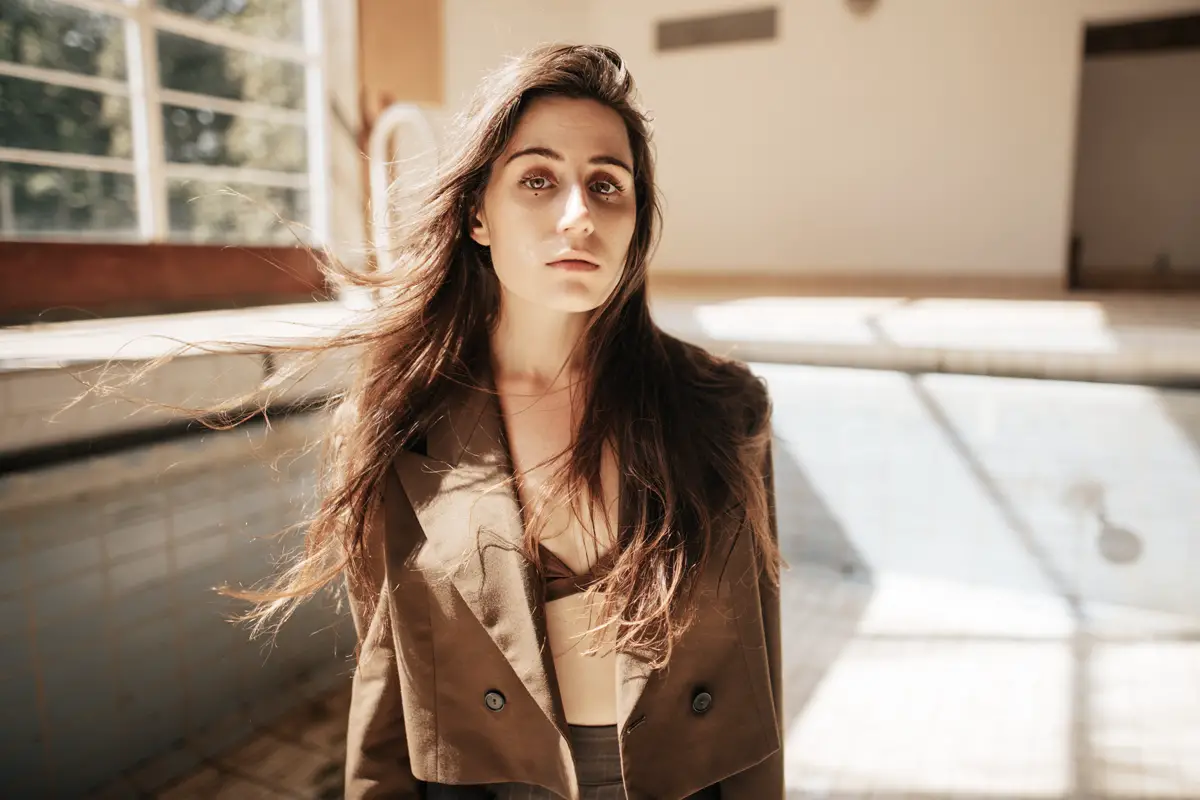
In the worry and the relief and all the feelings in between, dodie still has this confidence about her and the work she’s done. Her album is raw and unapologetic, but most importantly, it’s real. She said it so perfectly in her own words, “This is the first time I’m 100 percent happy with this music and it feels completely mine. I feel like it really is a portfolio or a body of work that is completely dodie and that feels really good.”
In the spirit of that Uber ride home, she’s released a lyric video series for the entire album, directed by her good friend Jack Howard, on her YouTube channel.
:: purchase/stream Build a Problem here ::
— —
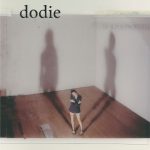
Connect with dodie on
Facebook, Instagram, Twitter
Discover new music on Atwood Magazine
? © Parri Thomas

